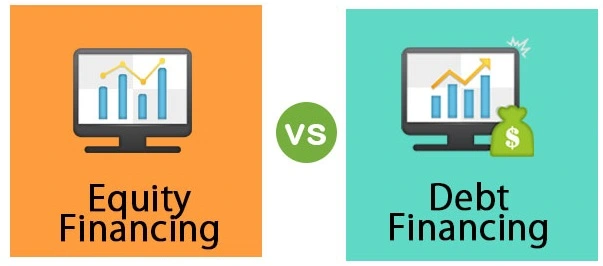Working for yourself offers many freedoms but also comes with a range of responsibilities, especially when it comes to managing your finances. Without a traditional employer to handle deductions, taxes, and other filings, it’s essential to take charge of your financial situation. The variety of income sources today, such as freelance work, digital content creation, and service-based roles, requires a tailored approach to handling finances.
Here’s how you can stay organized and avoid costly mistakes:
Understand Your Financial Responsibilities as a Self-Employed Individual

As someone who works independently, you are responsible for managing your own financial obligations. This means paying your share of Social Security, Medicare, and other contributions, often referred to as self-employment taxes. Unlike traditional employees, who have these amounts automatically deducted from their paychecks, you’ll need to handle these on your own. Be sure to set aside funds throughout the year to avoid a surprise at the end of the tax season. Familiarizing yourself with how these duties differ from those of a regular employee is the first step toward maintaining good financial health.
Seek Help for Filing Taxes on Subscription-Based Platforms
If you work as a freelancer, online product seller, or on a subscription-based platform like OnlyFans or similar services, understanding how your earnings are taxed is vital. Subscription income often requires you to handle both regular income tax and self-employment taxes, which can complicate matters. Many platforms do not automatically withhold tax, meaning you’re responsible for estimating and paying your own obligations. Also, some platforms may send you tax forms, such as a 1099, which will help you report your income. If you’re unsure about how to file or calculate your taxes on OnlyFans, it’s wise to seek advice from a professional who specializes in these kinds of earnings. They can help you understand how this type of income is taxed and the deductions you’re entitled to. They can help you avoid surprises when it’s time to file for taxes.
Keep Detailed Records of Every Dollar You Make
One of the biggest mistakes self-employed individuals make is failing to track their earnings thoroughly. When you work independently, there’s no paycheck stub or monthly statement to rely on. It’s up to you to keep a record of each payment, whether it’s from a client, customer, or a subscription service. Missing even a small amount can lead to financial trouble down the road. Create a system for tracking your earnings, such as using bookkeeping software or even a simple spreadsheet, to ensure that every dollar is accounted for. This will make your financial planning easier and help prevent issues during tax season.
Deduct the Business Expenses You Are Entitled To
One of the advantages of being self-employed is the ability to deduct expenses directly related to your work. Whether you have a home office, use certain equipment, or pay for services like software subscriptions, these costs can potentially reduce your taxable amount. However, it’s essential to keep accurate records of these expenses and ensure they are directly related to your work. Even small expenses, such as office supplies or travel for work, can add up over time, making it crucial to track everything. Deducting the proper expenses can result in significant savings, so don’t miss out on this opportunity.
Set Aside Money Throughout the Year
Managing your finances when you’re self-employed requires proactive planning. It’s essential to put aside a portion of your earnings regularly to cover your financial obligations at the end of the year. Many self-employed individuals find themselves caught off guard when they owe a large sum because they haven’t set money aside. Try estimating how much you’ll need to set aside based on your previous year’s earnings, or consult a financial advisor to create a plan that works for you. Setting aside funds throughout the year makes the process of meeting your obligations far easier and less stressful.
Pay Quarterly Estimated Taxes
As a self-employed individual, you are required to make estimated payments throughout the year to cover your tax obligations. Unlike salaried employees, who have their taxes automatically withheld, freelancers and business owners must calculate their own quarterly payments. These payments are typically due four times a year, such as April, June, September, and January. It’s essential to estimate how much you owe and set aside the correct amount each quarter to avoid penalties or a large tax bill at the end of the year. If you’re unsure about how much to set aside, many people find it helpful to consult a tax professional or use online tools to assist with calculations.
Track Your Mileage and Travel Expenses
If you use your car for work-related purposes, you may be able to deduct the mileage and other travel expenses associated with your business. Keeping a log of your trips and expenses is essential to maximize your deductions. You can either track the miles manually or use apps designed to help self-employed individuals track their business miles. Also, don’t forget to keep receipts for any travel expenses, such as parking, tolls, or lodging, to ensure they are accounted for when you file your taxes.
Stay Updated on Changing Tax Laws
Tax laws are constantly evolving, and staying informed is crucial for any self-employed individual. Changes in the law can impact your deductions, credits, and the overall way your income is taxed. For example, new rules could affect how you report earnings from content-sharing platforms or whether certain business expenses are deductible. It’s important to keep up-to-date with tax law changes that might apply to your situation, especially if you work on platforms with unique financial structures. Regularly check the IRS website or follow updates from trusted tax professionals to stay in the loop and ensure you’re complying with the latest regulations.
Managing your taxes when working for yourself requires careful planning and attention to detail. By staying organized, setting aside funds regularly, and understanding the specific rules related to your type of income, you can avoid the common mistakes that many self-employed individuals make. Don’t forget to track your expenses, make estimated payments throughout the year, and consult a professional who understands your unique financial situation. Whether you’re working on a freelance basis or earning through content platforms, taking these proactive steps will help you manage your financial responsibilities effectively and avoid unnecessary stress when it’s time to settle your obligations.



